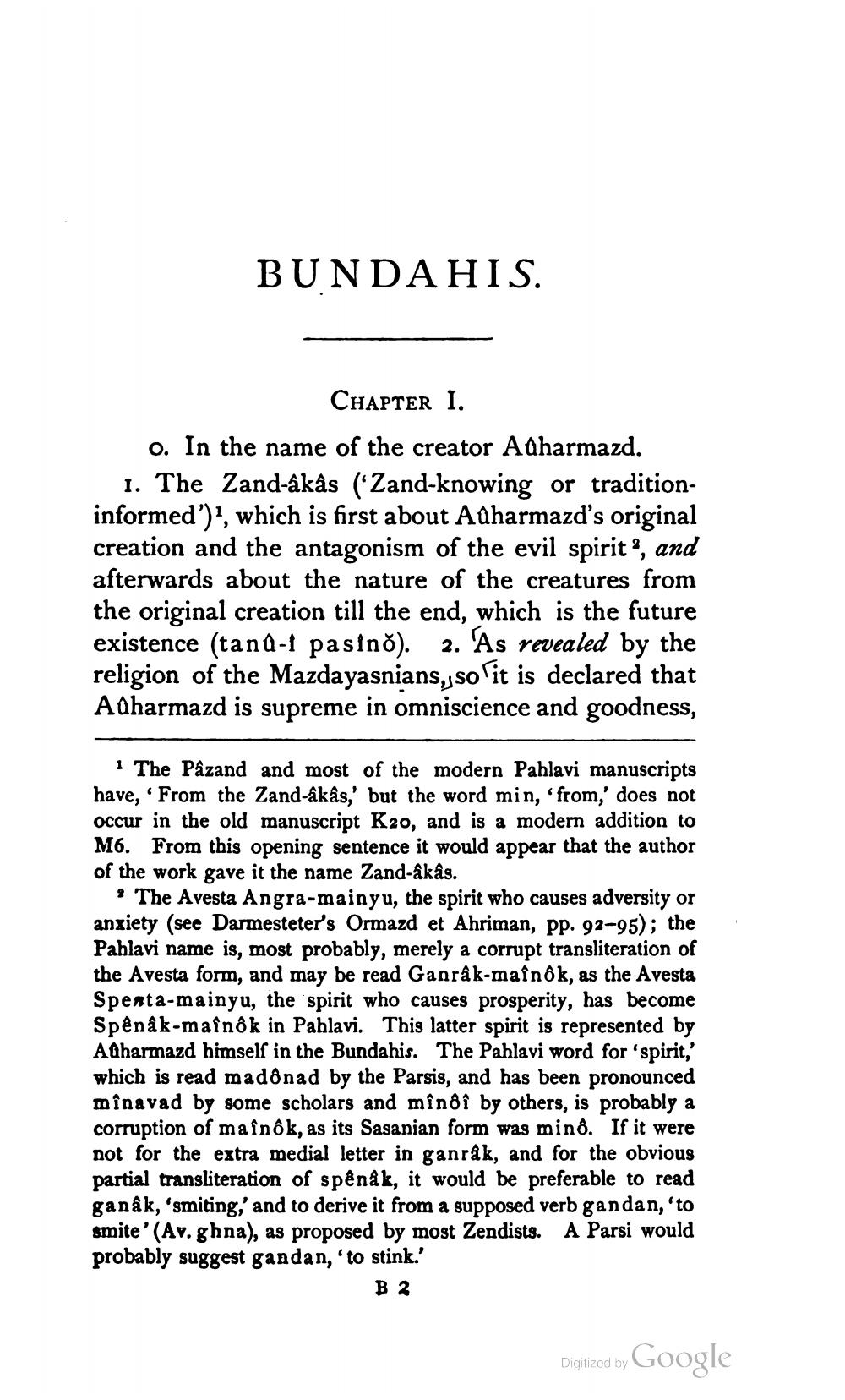________________
BUNDAHIS.
CHAPTER I. o. In the name of the creator Adharmazd. 1. The Zand-âkâs (Zand-knowing or traditioninformed'), which is first about Adharmazd's original creation and the antagonism of the evil spirit, and afterwards about the nature of the creatures from the original creation till the end, which is the future existence (tang- pasino). 2. As revealed by the religion of the Mazdayasnians, so it is declared that Adharmazd is supreme in omniscience and goodness,
1 The Pâzand and most of the modern Pahlavi manuscripts have, 'From the Zand-âkâs,' but the word min, 'from,' does not occur in the old manuscript K20, and is a modern addition to M6. From this opening sentence it would appear that the author of the work gave it the name Zand-âkâs.
• The Avesta Angra-mainyu, the spirit who causes adversity or anxiety (sec Darmesteter's Ormazd et Ahriman, pp. 92-95); the Pahlavi name is, most probably, merely a corrupt transliteration of the Avesta form, and may be read Ganrâk-mainok, as the Avesta Spenta-mainyu, the spirit who causes prosperity, has become Spênåk-mainok in Pahlavi. This latter spirit is represented by Adharmazd himself in the Bundahis. The Pahlavi word for 'spirit,' which is read madônad by the Parsis, and has been pronounced minavad by some scholars and minői by others, is probably a corruption of mainok, as its Sasanian form was mino. If it were not for the extra medial letter in ganråk, and for the obvious partial transliteration of spênåk, it would be preferable to read ganâk, 'smiting,' and to derive it from a supposed verb gandan,'to smite'(Av.ghna), as proposed by most Zendists. A Parsi would probably suggest gandan,'to stink.'
B 2
Digitized by
Digitized by Google




